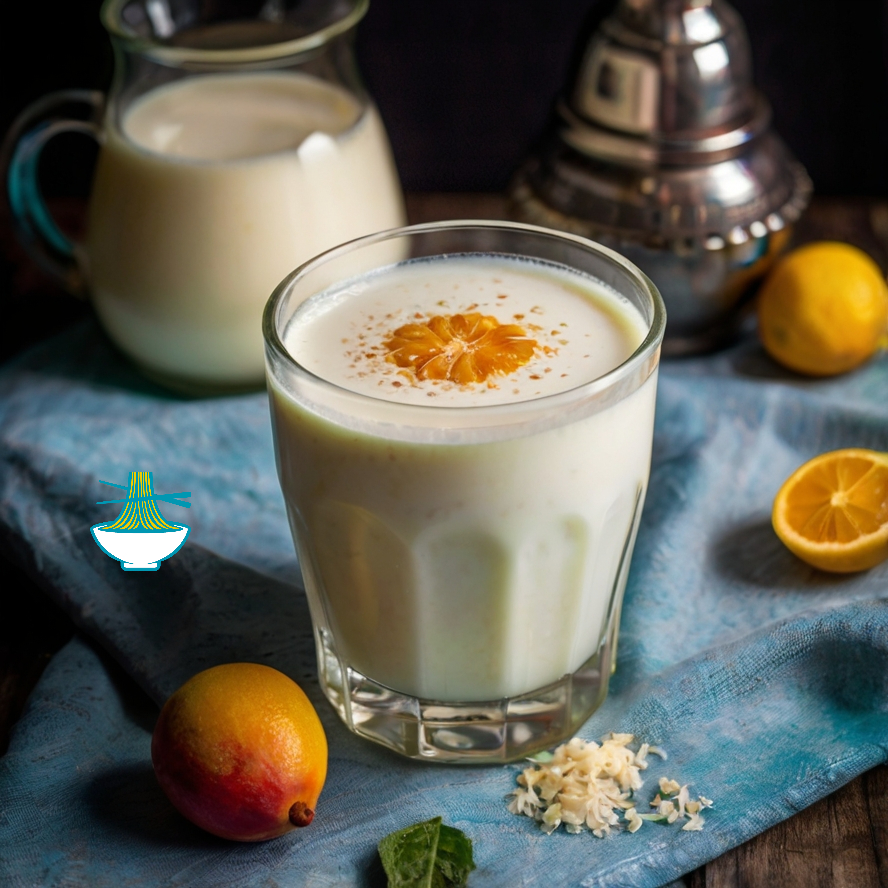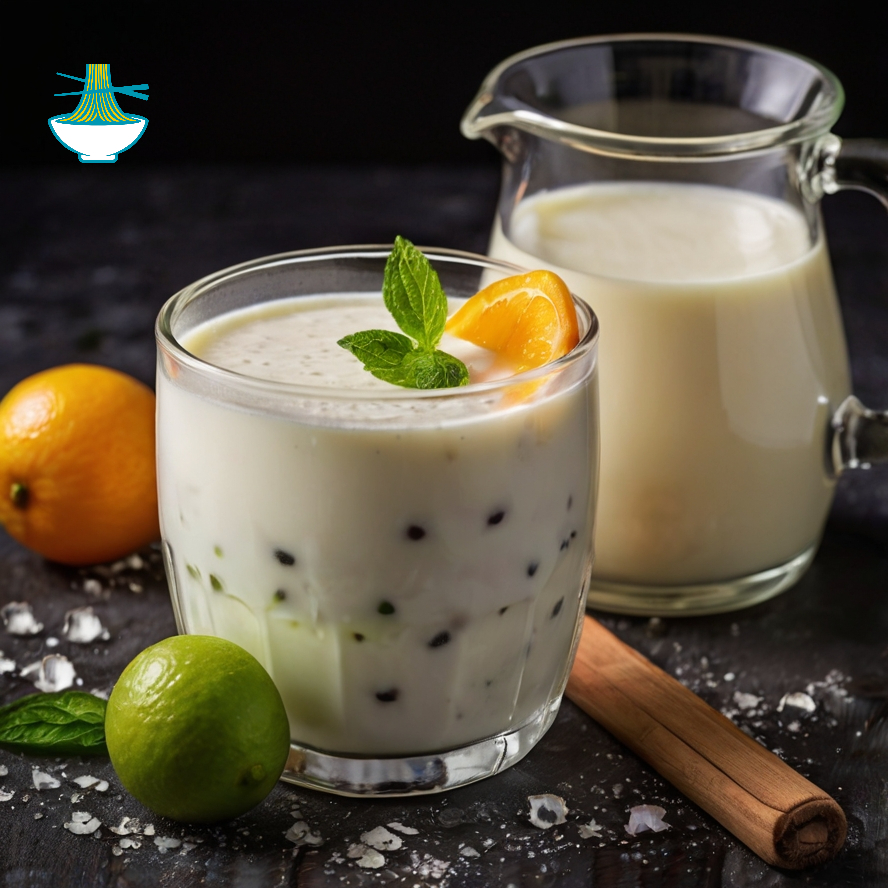its history intertwines with cultural practices and culinary traditions. The recipe involves fermenting milk to achieve a tangy flavor, offering both refreshment and a glimpse into cultural heritage.
Ingredients:
- Fresh milk
- Cultured buttermilk or yogurt (for fermentation)
Method:
1. Heat fresh milk until it reaches a lukewarm temperature.
2. Transfer the milk to a clean, sterilized container.
3. Add a small amount of cultured buttermilk or yogurt to the warm milk and stir gently to combine.
4. Cover the container loosely with a clean cloth or lid, allowing air to circulate.
5. Place the container in a warm, draft-free area and let it ferment for 12 to 24 hours, depending on desired sourness.
6. Once fermented, refrigerate the hoitpak until chilled.
7. Serve the refreshing hoitpak cold and enjoy its tangy goodness.
Note: Adjust fermentation time according to taste preference. Refrigerate any leftover hoitpak for future enjoyment.
Nutrition Value:
1. Fresh Milk:
- Calories: Approximately 150 calories per cup (240 ml).
- Carbohydrates: Around 12 grams per cup, primarily from lactose (milk sugar).
- Protein: About 8 grams per cup, providing essential amino acids for muscle repair and growth.
- Fat: Around 8 grams per cup, containing a mix of saturated, monounsaturated, and polyunsaturated fats.
- Sodium: Typically less than 100 milligrams per cup, depending on the brand.
- Cholesterol: Approximately 30 milligrams per cup.
- Vitamins: Rich in calcium, vitamin D, vitamin B12, and riboflavin.
- Minerals: Good source of calcium, phosphorus, and potassium.
- Nutritional Benefits: Fresh milk provides essential nutrients like calcium for bone health, protein for muscle growth and repair, and vitamins for overall well-being. It's also a source of hydration and can contribute to a balanced diet.
2. Cultured Buttermilk or Yogurt (for fermentation):
- Calories: Around 100-150 calories per cup (240 ml), depending on the fat content.
- Carbohydrates: Approximately 10-15 grams per cup, primarily from lactose and any added sugars.
- Protein: About 8-12 grams per cup, depending on the brand and type.
- Fat: Varies depending on the fat content of the product, ranging from 0% fat to full-fat options.
- Sodium: Typically around 300-400 milligrams per cup.
- Cholesterol: Varies depending on the fat content, with lower fat options having less cholesterol.
- Vitamins: Contains vitamin B12, riboflavin, and other B vitamins, depending on fortification and type.
- Minerals: Good source of calcium and phosphorus.
- Nutritional Benefits: Cultured buttermilk and yogurt are fermented dairy products, rich in probiotics that promote gut health. They also provide calcium for bone strength, protein for muscle maintenance, and various vitamins and minerals essential for overall health. Additionally, the fermentation process may enhance digestibility and increase the availability of certain nutrients.


Comments